Coffee is of crucial importance in all of Italy (coming in just behind the Colosseo in thematic importance). Coffee in Italy goes way beyond just a caffeine fix. It’s a ritual with cultural significance, social relevance, and a profound impact in people’s lives.
There’s no doubt: some of the world’s best coffee can be found in Italy, and Italians take this truth very seriously.
Ready to sip coffee like a true Italian? Whether you’re craving a caffè latte or a macchiato, this guide will help you order like a local—without any awkward moments.
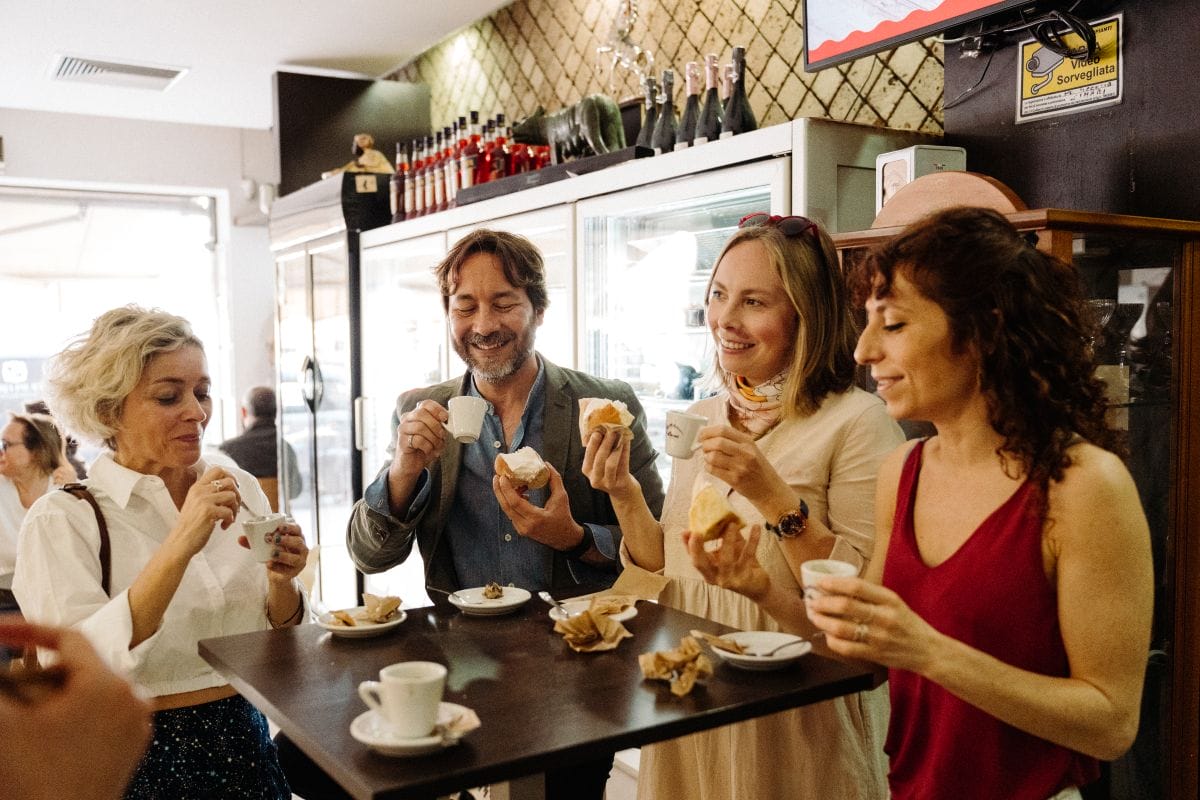
Types of coffee you’ll find in Italy
Okay, you’re ready to walk into the bar and order your coffee the Italian way. But first thing’s first, you need to know what to order.
Below, find the most popular ways to order a coffee in Italy, so you’ll know exactly what you want when you walk in the door.

Espresso
This is the holy grail of Italian caffè. Just like in the English-speaking world, an espresso is a shot of coffee.
Italians have a tendency to order this at any and all times of day, and it’s a great way to finish an exquisite pasta lunch. The good news is that there’s never a bad time to drink an espresso (but if you’re not used to Italian coffee, keep in mind that the caffeine may keep you awake at night).
If you want a double hit of caffeine, order an espresso doppio, a double espresso, but be ready for quite the kick.

Macchiato
A macchiato in Italian is not the coffee of the same name you might order at Starbucks elsewhere in the world. The word literally means “stained,” and it stems from the dash of milk added to your espresso.
If you’re lactose intolerant, try asking for latte di soia (soy milk), latte di mandorla (almond milk), or latte di cocco (coconut milk).
However, these options may not be available everywhere. If not, you can always choose black coffee instead. Nevertheless, most places will probably have at least one non-dairy option.
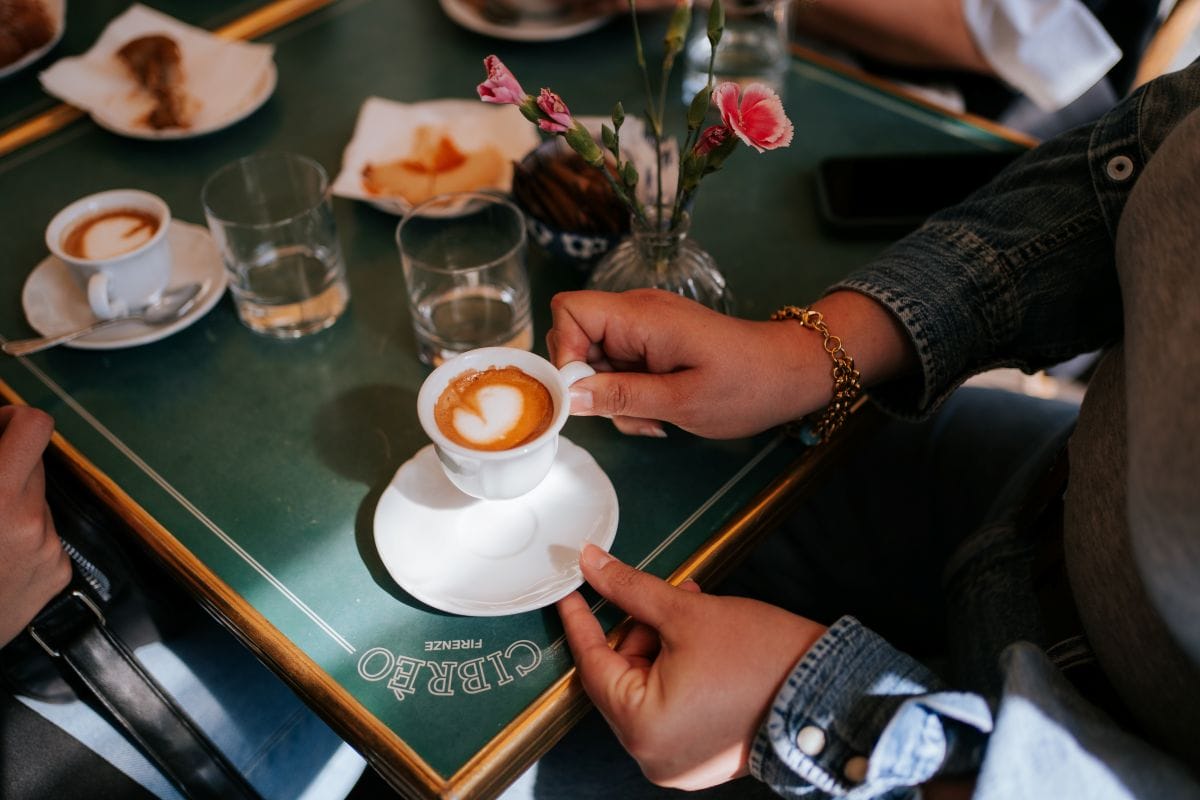
Caffè latte/latte macchiato
Caffè latte translates to coffee and milk. It will usually come in a cup filled with espresso and steamed milk. It’s also common to see it in a tall glass.
The difference to note is that while a caffè latte has milk added to the espresso, and is therefore coffee-based. Latte macchiato, on the other hand, has espresso added to the milk, making it milk-based.
A latte macchiato will be foamier and have much less espresso in it than a caffè latte, which may be why this tends to be the drink of choice for Italian teenagers just starting their espresso journey.

Cappuccino
Famous worldwide, we know we don’t need to tell you what a cappuccino is. But we added it to the list because this coffee drink does come with its own unique set of rules.
A cappuccino (or anything that heavily involves milk, such as a caffè latte or latte macchiato), is very much considered a breakfast beverage. That’s why Italians tend to enjoy it with a cornetto (an Italian pastry that is similar to a croissant) in the morning rather than after meals later in the day.
If you order this with or after your lunch or dinner, expect a snicker or two as it’s not really what the locals do. That being said, at Devour we’re big believers in you doing you. So, if that’s what you’re craving, we say go for it, as long as you know it’s not the most traditional order.
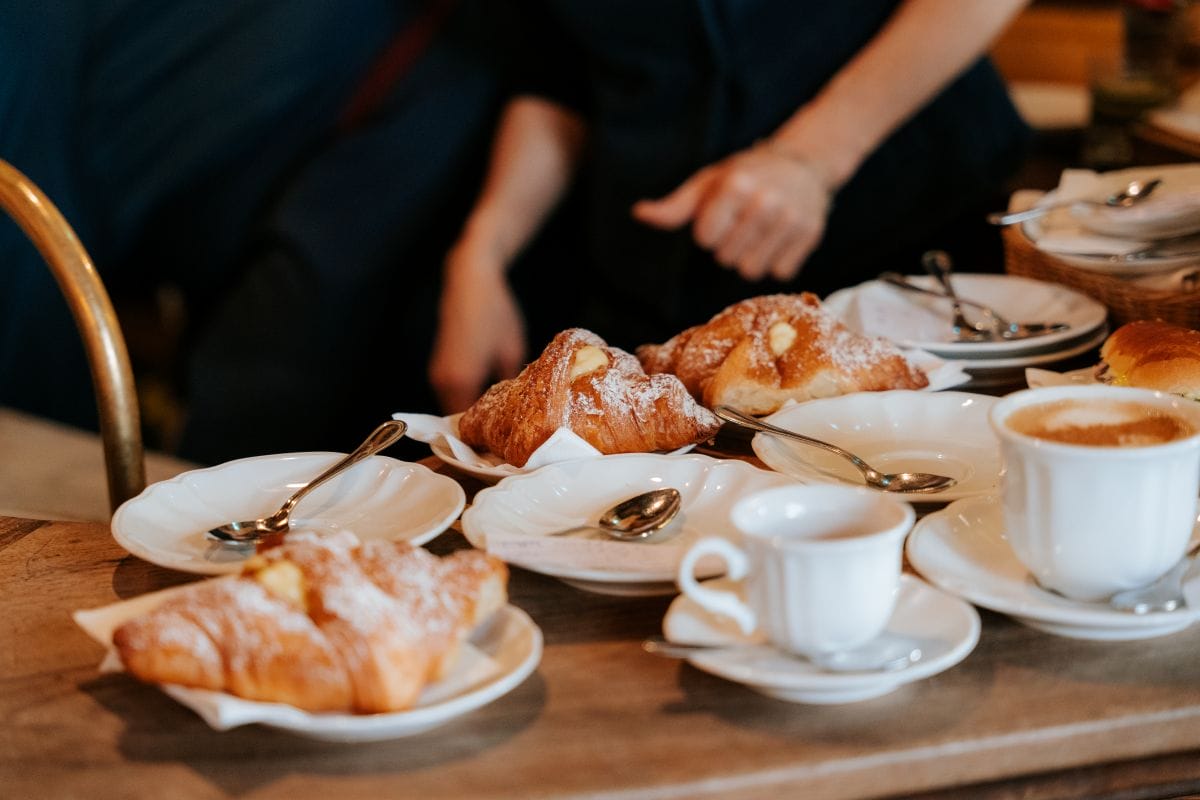
Decaffeinato
This is the word for a decaf coffee. Order this if you’re looking for that coffee taste without the caffeine. You may also hear this referred to as a “deca.”
We’re not going to lie, for Italians the concept of ordering a decaf coffee is hard to grasp, so you may get a few of them asking why you’d do that. Don’t worry, they eventually understand not all of us have their extraordinary caffeine tolerance.
Another popular option throughout Italy is ordering an orzo, a caffeine-free coffee substitute made from ground barley.

Caffè corretto
This is a shot of espresso with a bit of liquor thrown in for good luck, usually grappa or sambuca.
Don’t expect anything too fancy on most occasions, though. In many cases, they’ll give you the espresso with a shot of liquor next to it, but that’s about it.
It’s usually a good drink to warm up during winter, but also to cheer yourself up at any moment.

Caffè shakerato
An amazing summer option, this is usually a simple mix of coffee and ice shaken up together, though some places will add cream or milk.
It’s commonly known as just “shakerato,” and once you learn how to do it, it’s a delicious recipe you may take home with you for any warm day in the future.

How to order a coffee in Italy
Now that you’ve learned the different coffee options in Italy, it’s time to learn how to order.
In most Italian bars (remember, in Italian, a bar is like a café), people go in, order, drink at the counter, have a chat, and then head back out. This is certainly the most traditional way of having coffee in Italy, as Italians don’t subscribe to the coffee-to-go lifestyle.
However, you can definitely find places where you can sit down as you linger over your newspaper, or in the summertime enjoy a table outside and people-watch while you enjoy your shakerato.
Now, let’s here’s a simple step-by-step guide to order a coffee in Italy:
- Step 1: Walk up to the bar and say “Buongiorno!” with a smile.
- Step 2: Use “Vorrei un…” (I’d like a…) followed by your coffee of choice — like “un espresso” or “un cappuccino”.
- Step 3: Add a polite “per favore” (please) at the end. Example: “Vorrei un cappuccino, per favore.”
- Step 4: Pay at the register and enjoy your coffee standing at the bar like a true local.
- Keep it simple, polite, and quick.
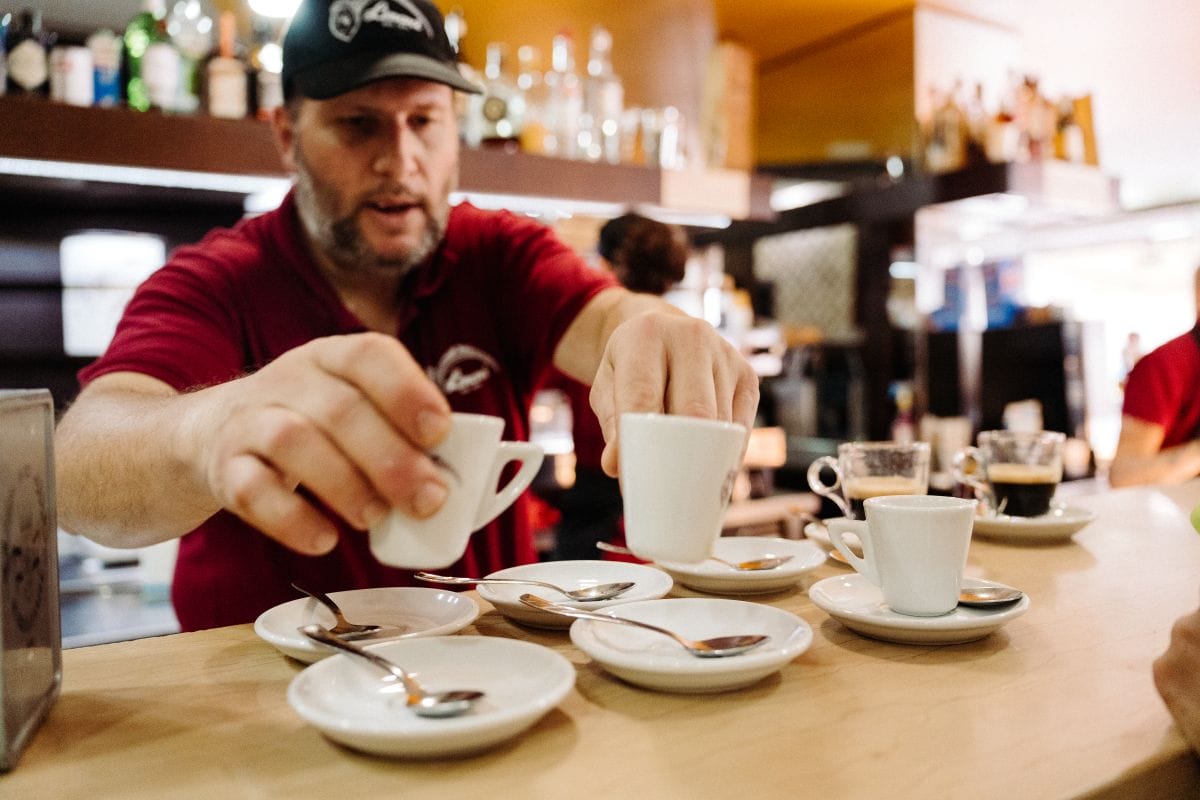
Coffee traditions: Caffè sospeso
One last thing we wanted to share with you is an old coffee culture tradition, no longer often used, that we’d love to see brought back.
When you order a coffee, you can also order a caffè sospeso, a “suspended coffee,” meaning you pay for an extra coffee, and then if someone comes in who can’t afford one, they can ask if there are any suspended—and if there are, they get a coffee, too.
We love this idea. It embodies Italian warmth and kindness, and it’s the kind of thing we all could use a bit more of in this world.
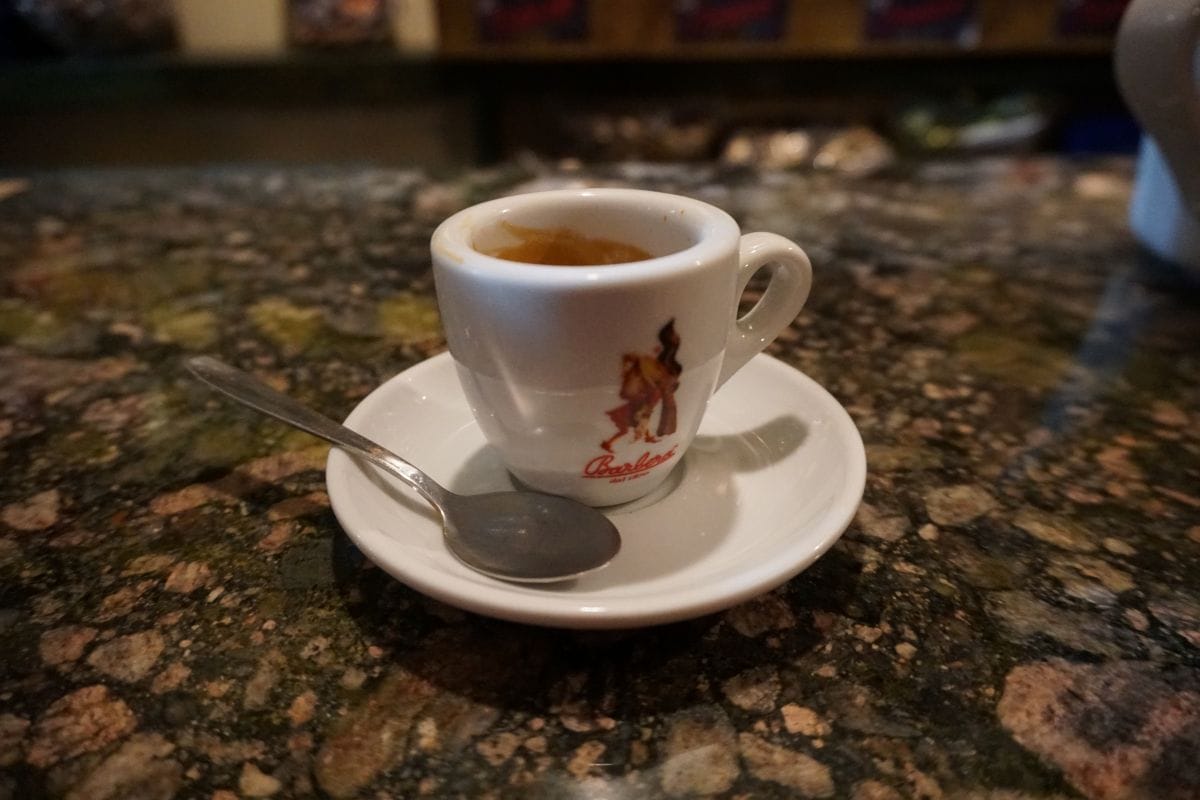
Coffee in Italy: FAQ
What is the difference between a latte and a caffè latte in Italy?
A “latte” in Italy just means milk. A “caffè latte” is espresso mixed with hot milk.
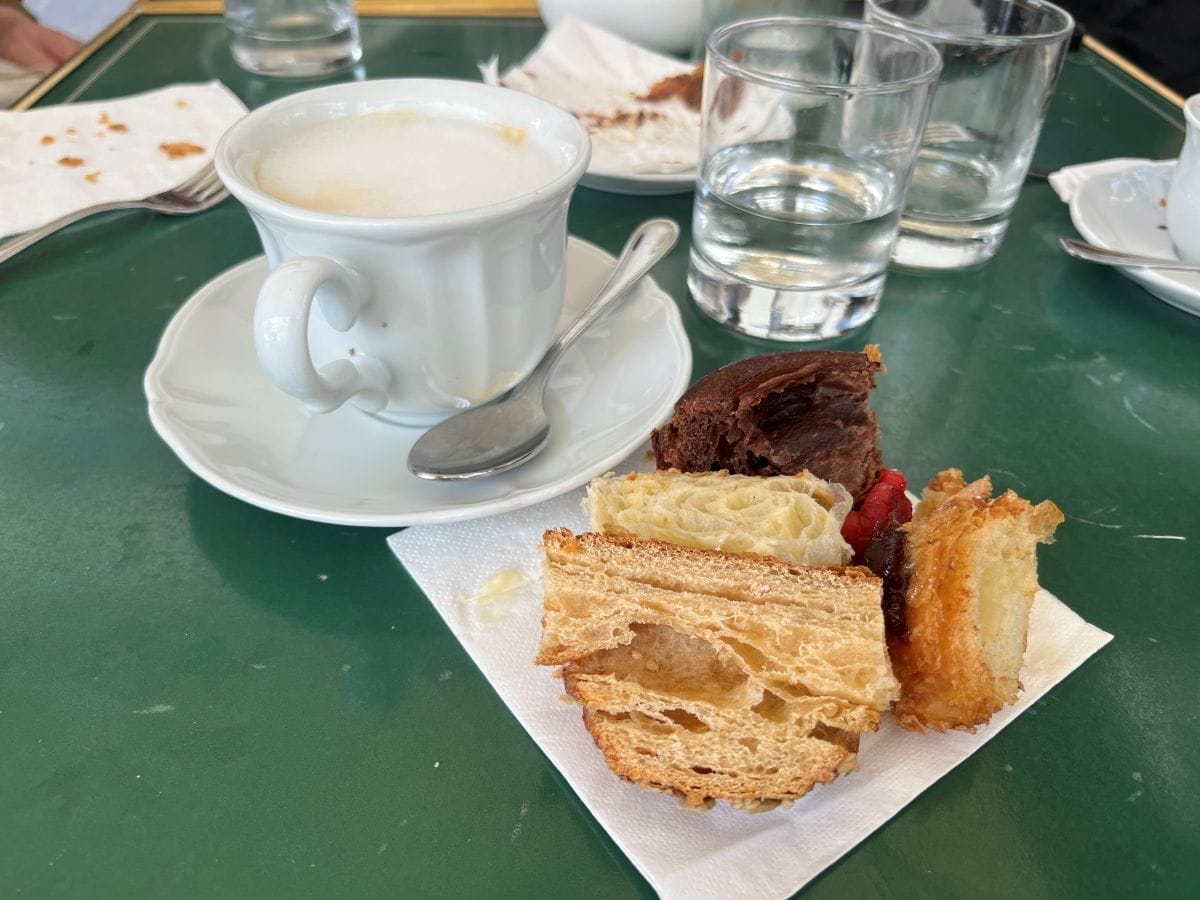
Is it rude to order a cappuccino after 11 am?
In Italy, it’s culturally uncommon but not offensive; locals just might find it unusual.
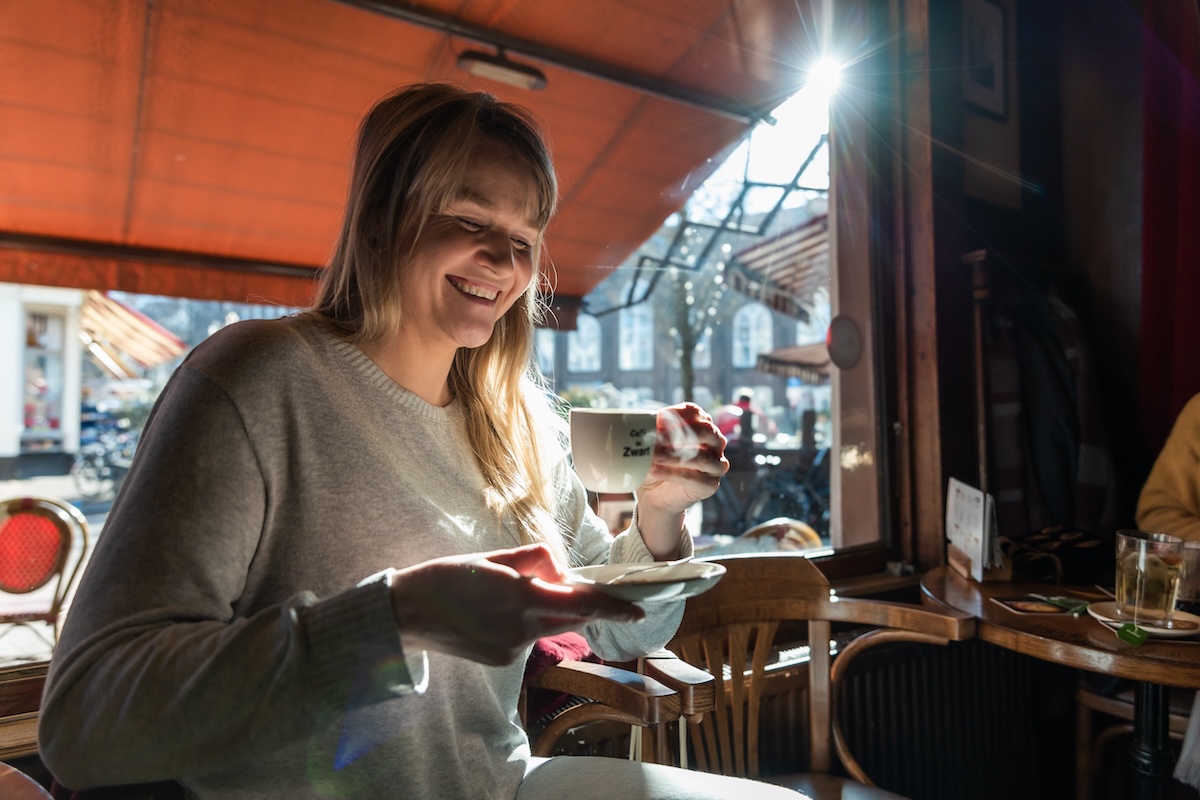
Can I get an iced coffee in Italy?
Yes, order a “caffè freddo” or a “shakerato” for a chilled espresso drink.
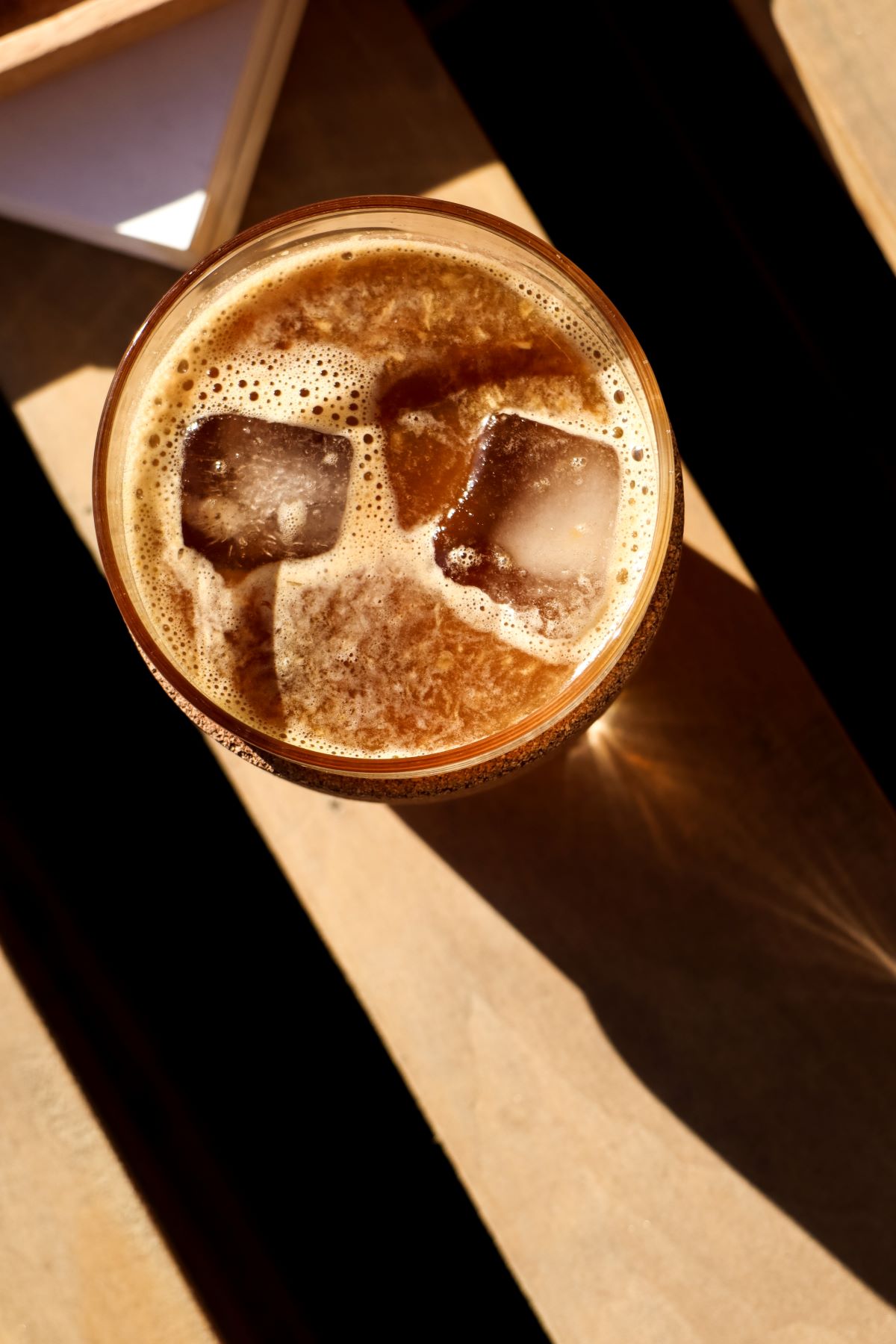
What does ‘latte macchiato’ mean?
It’s milk “stained” with a shot of espresso — the opposite of a caffè macchiato.
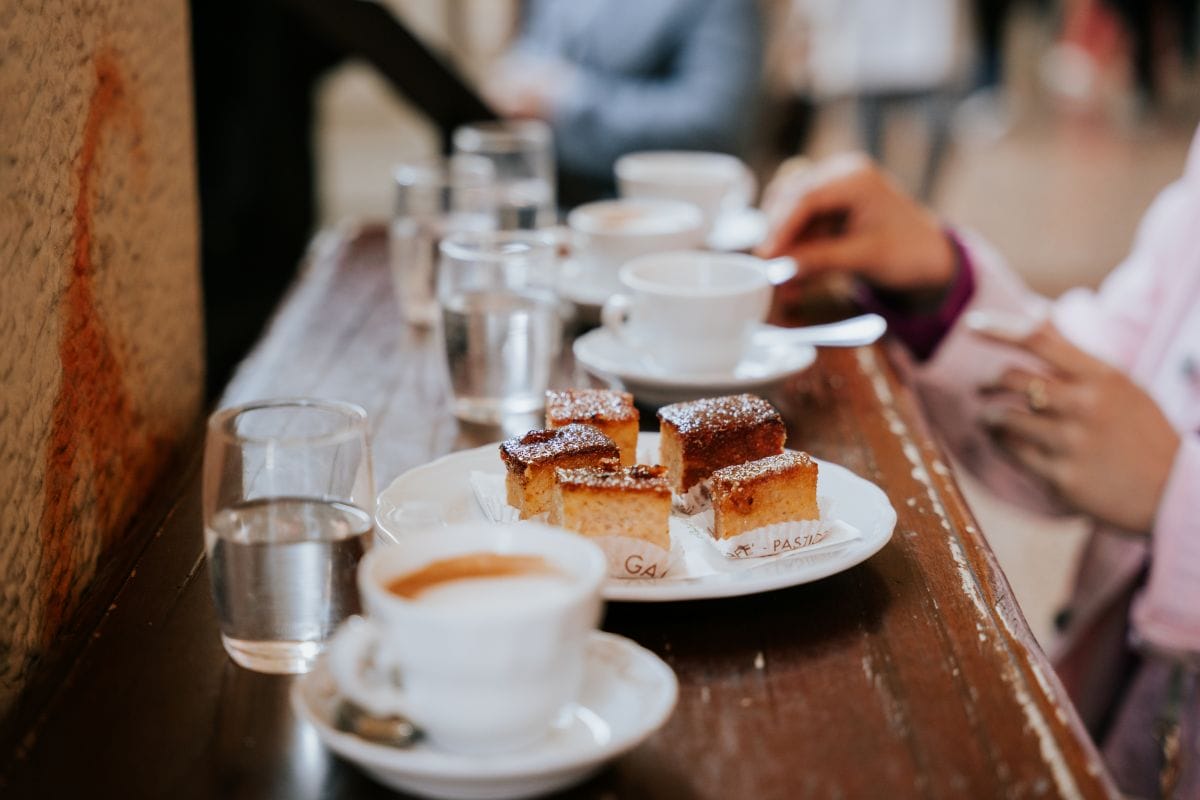
How do I ask for a takeaway coffee?
Say “caffè da portar via” for a coffee to go, although takeaway coffee isn’t as common.
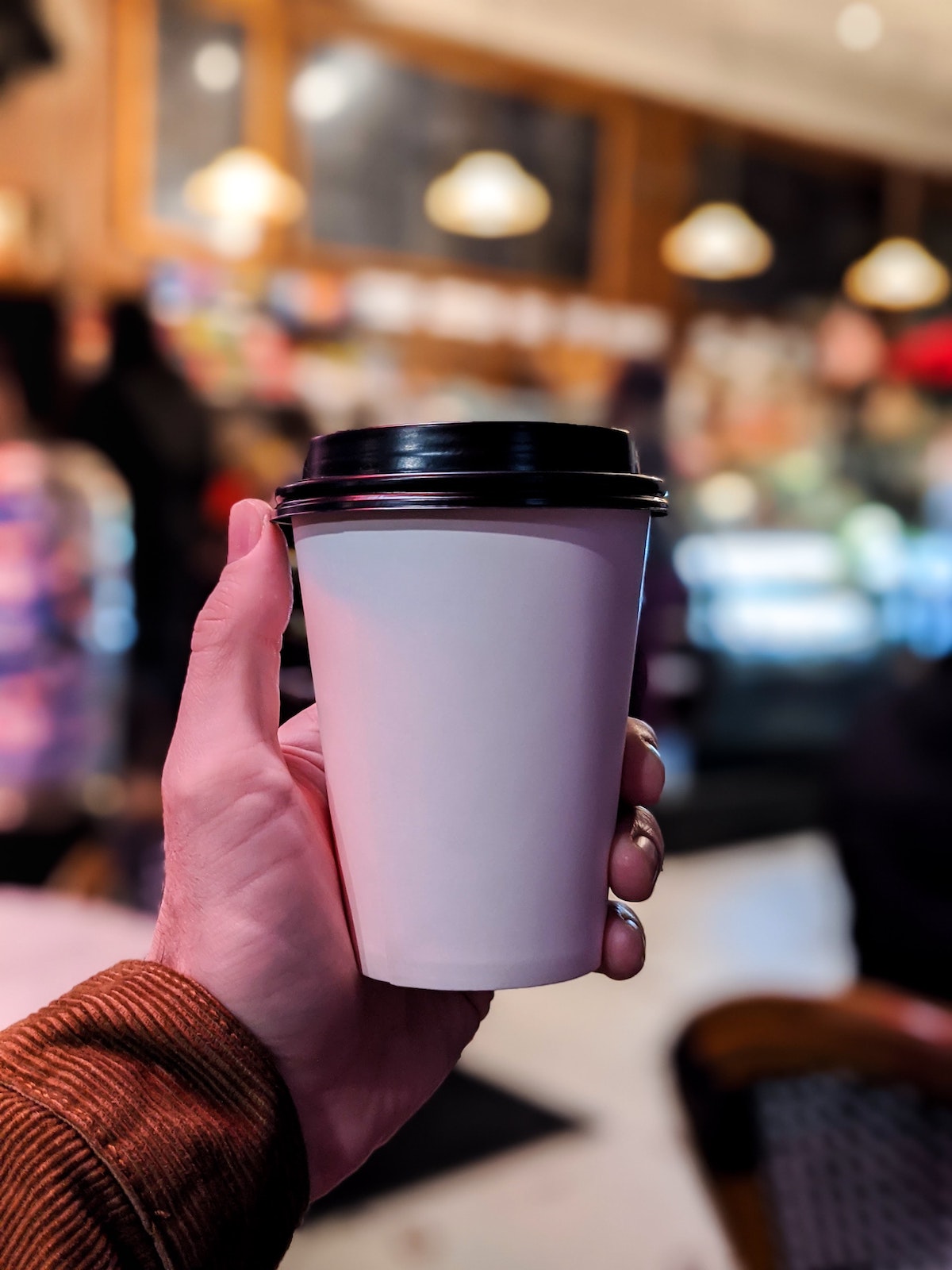
Can I customize my coffee order in Italy?
Yes, but expect simple, traditional variations rather than complicated custom drinks.
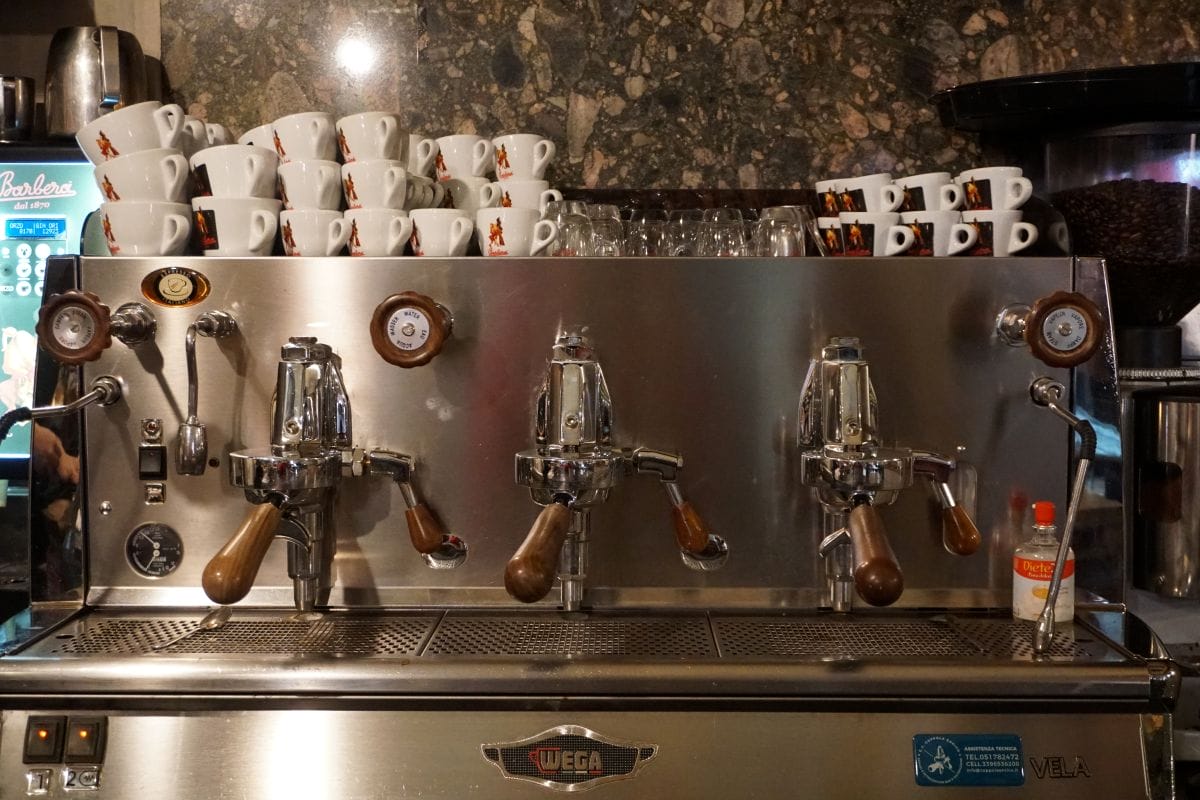
Is there a flat white in Italy?
Not typically — instead, you might enjoy a “caffè latte” or a “cappuccino.”
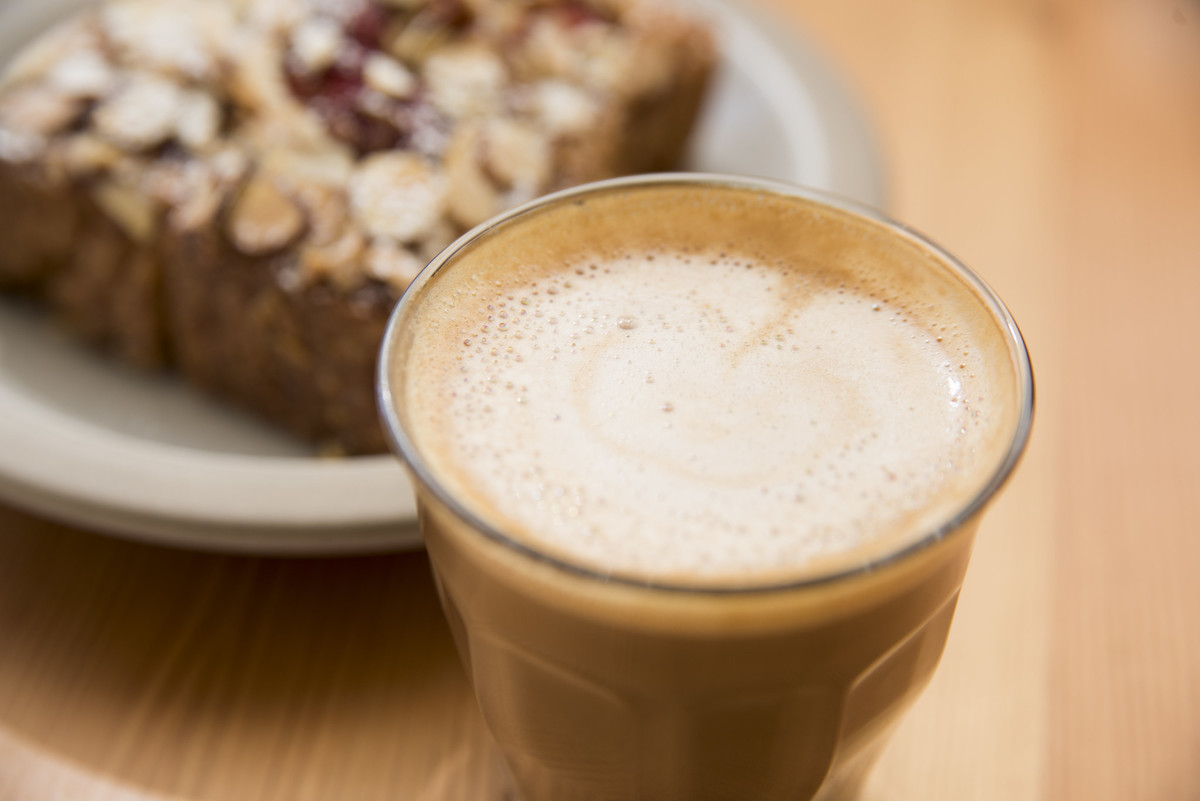
Update Notice: This post was updated on May 5, 2025.
Hungry for more than just coffee? Join one of our Devour Italy food tours and eat your way through Italy like a local! From rustic Roman specialties to Neapolitan pizza and northern risotto, our tours dive into the heart of regional Italian cuisine. Whether it’s your first visit or your 5th, there’s always something new (and delicious) to discover.

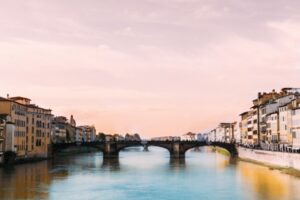








You have got it spot on with this article! I have worked in many coffee bars in Roma and this brings back great memories to me. I live and work in London now, and there are actually a lot of coffee bars and restaurants where you can also order a caffè sospeso. It’s called something different, but the idea is the same. I wish the tradition would make a comeback in Italia!
Thanks for reading, Marco!